Reading, literacy, literature and writing in the digital age: new didactic approaches
Course description
This course was developed within the research carried out by the PhD Program in Materialities of Literature, at the University of Coimbra, aiming at a didacticization of new research around the relationship between literary meaning and the materialities of language, sound, voice, performance, codex, image and digital writing. Thus, among others, the following topics will be addressed: i) multimodality in print (comics and zines) and digital media; ii) digital children’s and youth literature: reading, reception and creation; iii) online communities and written production, from booktubers to Wattpad; iv) Digital Humanities, literature and teaching: Fragments in Practice and the Digital Archive of the Book of Disquiet; v) sound, image, voice and performance: Gil Vicente’s theatre. For registratiom, follow this link.
Modules
1. “Reading, literacy, literature and writing in the digital age: from curricular guidelines to teaching practices” – Ana Albuquerque and Aguilar
2. “Digital children’s and youth literature: reading, reception and creation” – Ana Albuquerque and Aguilar, Jaqueline Conte
3. “Creating, collaborating, teaching: construction of teaching models through the project Fragments in Practice and the Digital Archive of the Book of Disquiet” – Cecília Magalhães
4. “Comics, readings and literatures” – Carolina Martins
5. “Online communities and user-generated content: new models for reading and producing writing” – Joana Bárbara Fonseca
6. “Seeing (and listening) to better read Gil Vicente: approaching videos of Vincentian plays as curriculum enrichment” – Nuno Meireles
Objectives
The aim of this course is to complement teacher training with the discussion of topics and pedagogic methodologies which, although referenced in national and international curricular documents and orientations, such as Perfil dos Alunos à Saída da Escolaridade Obrigatória (2017), Aprendizagens Essenciais (2018) or Global Framework of Reference on Digital Literacy Skills (2018), are still under-represented in teacher training, whether in initial or lifelong training contexts. The goal is to develop future and current teachers’ skills and knowledge, providing them with tools not only for addressing curricular guidelines but also to respond to the needs of current students and to the challenges of the twenty-first-century school. At the end of the course, trainees should be able to use the platforms and programs covered, as well as the works and methodologies worked on, integrating them critically in their teaching practices.
Teaching methodologies and assessment
The course will follow a theoretical-practical methodology, in a continuous evaluation regime. Each module will consist of a theoretical moment and a practical component, according to a workshop model. The final grade will result from the average between the practical work in the workshops (60%) and the planning of a didactic or curricular unit (40%).
Essential materials
We recommend trainees to bring their own computer.
Whenever necessary, the theoretical bibliography will be sent to the trainees.
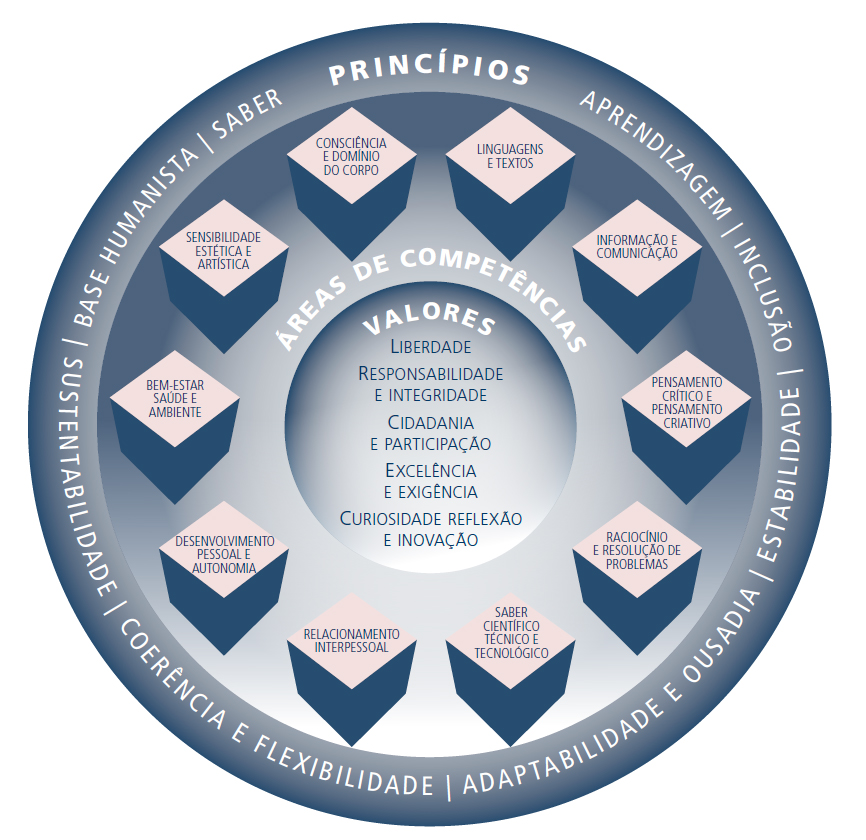
MODULE 1
Reading, literacy, literature and writing in the digital age: from curriculum guidelines to teaching practices
Instructor: Ana Albuquerque e Aguilar
Description
As this is the initial module of the course, there will be a brief introduction to the areas of study and research within the Materialities of Literature programme, exploring some fundamental concepts. It is intended to frame didactic and pedagogically metalanguage, objects, methodologies and tools addressed during the course, through the discussion of bibliography and curriculum reference documents for basic and secondary education.
During the second part, we will look at concrete examples of objects and practices brought about by digital culture that challenge the traditional teaching of reading, literacy, literature and writing. Those examples will be analyzed and discussed, looking for clues concerning their didactic appropriation.
Essential materials
Computer (with Flash Player installed) and headphones.
Bibliography
ALBUQUERQUE E AGUILAR, Ana (2017). «Leitura e escrita em sala de aula: do papel ao digital», in Atas do 12.º ENAPP: Língua e Literatura na Escola do Século XXI, Lisboa: Associação de Professores de Português.
CASSANY, Daniel (2019). Laboratorio Lector: para entender la lectura. Barcelona: Anagrama.
MANGEN, Anne e Van der Weel, Adriaan (2016). “The evolution of reading in the age of digitization: an integrative framework for reading research”. In Literacy, 50, 3: 116-124. (http://onlinelibrary.wiley.com/doi/10.1111/lit.12086/full)
Documents
Ministério da Educação (2017). Perfil dos alunos à saída da escolaridade obrigatória, Lisboa: ME. (http://dge.mec.pt/sites/default/files/Curriculo/Projeto_Autonomia_e_Flexibilidade/perfil_dos_alunos.pdf)
Ministério da Educação (2018). Aprendizagens Essenciais. Português (Ensino Básico: 1.º- 9.º), Lisboa: ME. (https://www.dge.mec.pt/aprendizagens-essenciais-ensino-basico)
Ministério da Educação (2018). Aprendizagens Essenciais. Português (Ensino Secundário: 10.º-12.º), Lisboa: ME. (https://www.dge.mec.pt/aprendizagens-essenciais-ensino-secundario)
UNESCO (2018). Global Framework of Reference on Digital Literacy Skills. Montreal: UIS. (http://uis.unesco.org/sites/default/files/documents/ip51-global-framework-reference-digital-literacy-skills-2018-en.pdf)
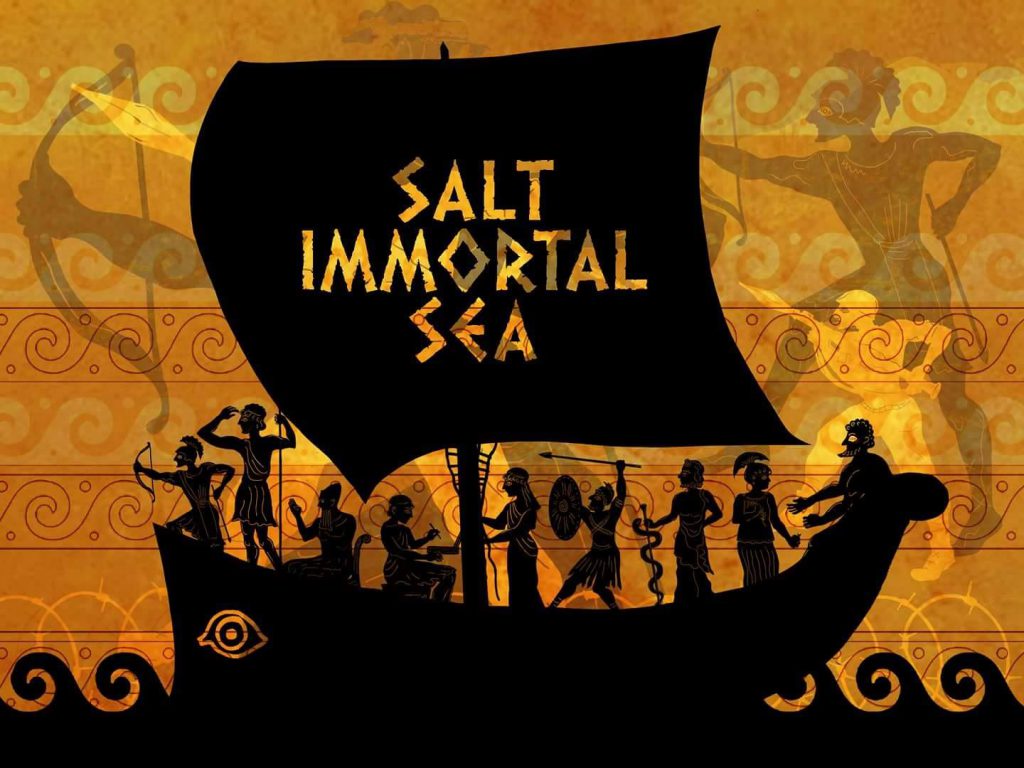
MODULE 2
Digital children’s and youth literature: reading, reception and creation
Instructor: Ana Albuquerque e Aguilar, Jaqueline Conte
Description
After an initial approach to electronic literature, we intend to focus on the subgenre of digital children’s and youth literature, exploring some of its features, such as multimodality, interactivity and non-linearity (Manresa & Real, 2015; Ramada Prieto, 2017), reflecting on their educational and training implications.
Subsequently, there will be a practical component, in which trainees will have the opportunity to read and explore digital literary works (narrative fiction and poetry), reflecting on the role of the reader in the construction of the path of reading and interaction with the work, as well as on the role of multimodality in the construction of meaning. Finally, trainees will experience the (co-)creation of new digital literary objects.
Essential materials
Computer (with Flash Player installed) and headphones.
Bibliography
MANRESA, Mireia e Neus Real, eds. (2015). Digital Literature for Children – Texts, readers and educational practices. Berna: Peter Lang.
RAMADA PRIETO, Lucas (2017). Esto No Va de Libros. Literatura Infantil y Juvenil Digital y Educación Literaria. Tese de Doutoramento: Universidade Autónoma de Barcelona.
TORRES, Rui; Machado, Ana Maria; Albuquerque e Aguilar, Ana; Andrade, Júlia; Estefani, Thales; Pereira, Luís Lucas (2019). “Literatura eletrónica para crianças: o caso do projeto “Murais e Literatura: A Criação Digital em Contexto Educativo”. Leitura: Teoria & Prática, Campinas, São Paulo, v.37, n.75, p.39-66. (https://ltp.emnuvens.com.br/ltp/article/view/747)
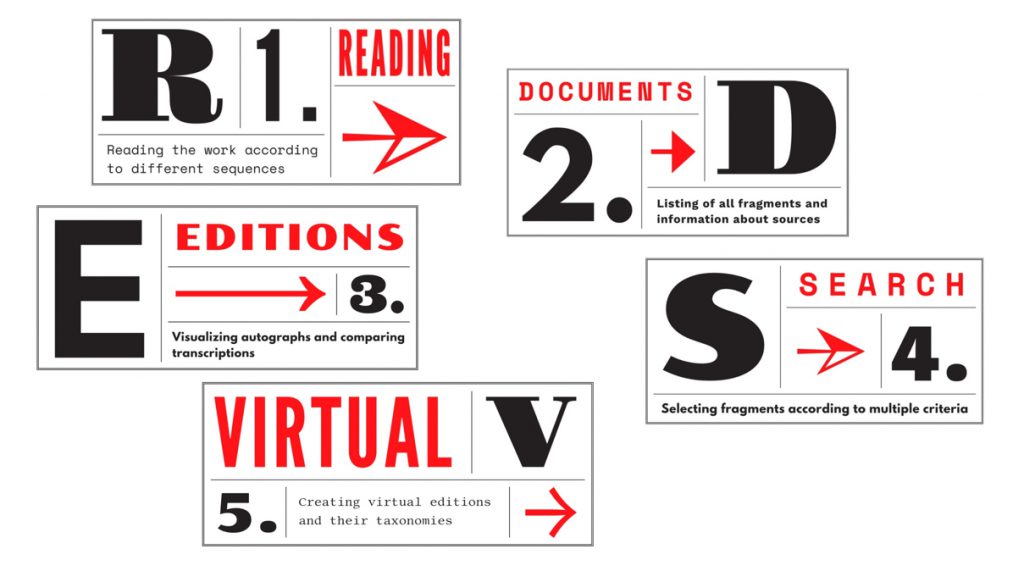
MODULE 3
Creating, collaborating, teaching: construction of teaching models through the project Fragments in Practice and the Digital Archive of the Book of Disquiet
Instructor: Cecília Magalhães
Description
The module “Creating, collaborating, teaching” aims to foster a productive dialogue about current teaching practices in the classroom, specifically in relation to the dynamics of transfer, discussion and critical apprehension of contents in the context of the Web 2.0. In this sense, the module encourages the discussion of such practices according to the participants’ own experience, treating Literature (as well as its means of materialization and use) as incentive engines for the production of a common creative conscience, both in the practical structuring of the dynamics in the classroom and in the formulation of a certain intention of learning, and also in the education of the teacher as a creative individual.
In order to reflect on those issues, the module will be divided into three distinct stages: 1) introduction to the functionalities of the Archive of the Book of Disquiet (https://ldod.uc.pt), a digital platform that simulates and enhances practices of reading, writing and editing the Book of Disquiet; 2) presentation of the Fragments in Practice, activities, a project focused on the collaborative and creative processes developed through the situated contexts of use of the Archive, planning and collective discussion of possible scenarios for creative appropriation of the platform for educational purposes, in view of the challenging context of the contemporary classroom in times of transmedia interaction.
Prerequisites
Please register in the LdoD Archive. prior to the workshop. For effective registration, follow the instructions in video 2 “Knowing the Archive”. Save your username and password for classroom access. [NOTE: Registration for full access to the platform is made by automatic email and takes around one business day. Often these emails are considered spam instead of entering directly into the email inbox. Please check your spam boxes to confirm receipt of your validation token as editor of the LdoD Archive. For further questions please contact us by email: fragmentos.em.pratica@gmail.com].
Make yourself familiar with the LdoD Archive environment with the help of the video tutorials.
Essential material
Computer.
Bibliography
BAITELLO, Norval (2012). O Pensamento Sentado: Sobre glúteos, cadeiras e imagens. São Leopoldo: Editora Unisinos.
PORTELA, Manuel. ‘Nenhum problema tem solução’: um arquivo digital do Livro do Desassossego. MATLIT: Materialidades da Literatura. Vol. 1, Nº 1 (2013). https://digitalis.uc.pt/handle/10316.2/29979
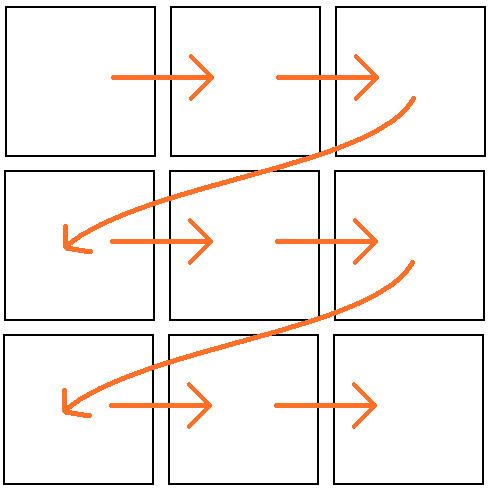
MODULE 4
Comics, readings and literatures
Instructor: Carolina Martins
Description
This module aims to promote practices of using Comics as an enriching element in the classroom to improve reading, writing and interpretation skills and motivate the study across several subjects. At the same time, the value of Comics should also be recognized as a multimodal literary medium, capable of becoming an object of study and interpretation by themselves.
First, the origins of Comics and its major genres will be briefly presented, as well as their basic formal characteristics. Then, we will examine the relationship of certain works with the themes they address and consider how they can not only complement the contents of different subjects, but also stimulate critical dialogue. Finally, examples of the didactic possibilities of Comics will be given and we will experiment with the creation of small zine, thus stressing the importance of multimodality in interpretative processes.
Prerequisites
Knowledge of English will be an asset.
Material (recommended, but not mandatory)
Computer, tablet and/or smartphone. NOTE: You don’t need to know how to draw!
Bibliography
STEIN, Daniel; THON, Jan-Noel, eds. (2013). From Comic Strips to Graphic Novels: Contributions to the Theory and History of Graphic Narrative. Berlin/Boston: De Gruyter.
SOUSANIS, Nick (2015). Unflatenning. Cambridge/London: Harvard University Press.
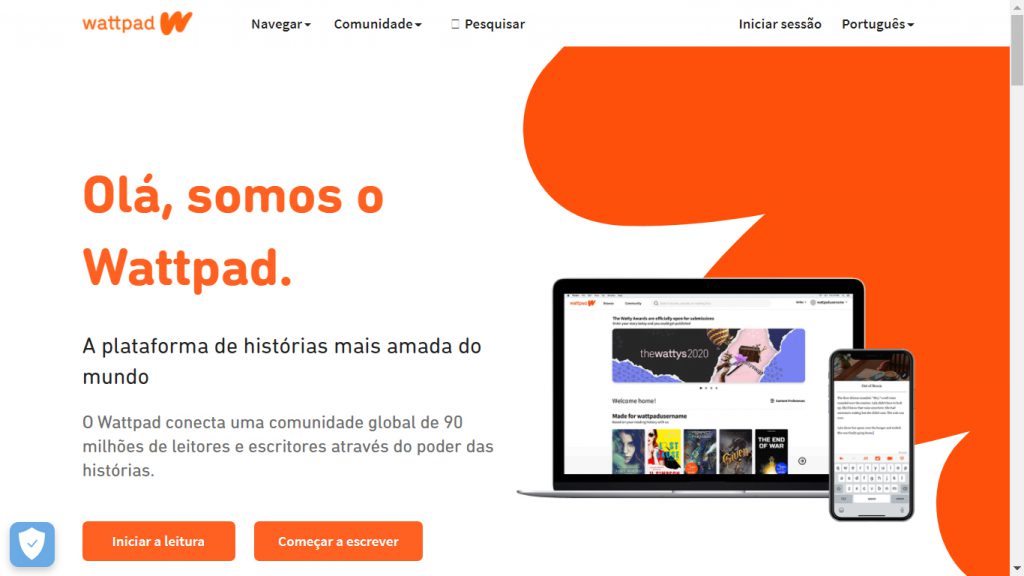
MODULE 5
Online communities and user-generated content: new models for reading and producing writing
Instructor: Joana Bárbara Fonseca
1. Theoretical introduction: presentation of basic concepts in the areas of Fan Studies and Fanfiction Studies, more specifically, as a branch and sub-branch emerging from the field of Cultural Studies. Presentation of Fanfiction as a literary genre; establishment and distinction of subgenres, types of classification, essential terms that form the core of a specific lexicon. Starting from the concept of ‘fandom’, we will explore the creative / transforming / reconfiguring concepts and possibilities of fan communities, their origins, and the various forms of expression. Other forms of Fanfiction: fanart, fanvids, podcasts, cosplay. Other forms of expression of the online culture of user-generated content: memes and gifs.
2. Laying the foundations for the debate about the dynamics of content production by the user-consumer, the limits of authorship and copyright laws through the analysis of concrete cases of ‘fanfics’ on major productions of popular culture.
3. Hands-on approach: exploration of repositories, platforms and tools for reading / writing / sharing texts (focusing on Wattpad, platform and app). Discussion of creative possibilities and the scope of this type of tools in the construction of a place for ‘fanfic’ in a didactic context.
Prerequisites
Knowledge of English will be an asset.
Essential materials
Computer or tablet.
Bibliography
ALENCAR, Daniele Alves; ARRUDA, Maria Izabel Moreira (2017). “Fanfiction: uma escrita criativa na web”, Perspect. ciênc. inf. vol.22 no.2, Belo Horizonte, Apr./June 2017. http://dx.doi.org/10.1590/1981-5344/2760
GRAY, Jonathan; SANDVOSS, Cornel and HARRINGTON, C. Lee, eds. (2017). Fandom Identities and Communities in a Mediated World. New York/London: New York University Press.
HELLEKSON, Karen and BUSSE, Kristina, eds. (2014). The Fan Fiction Studies Reader. Iowa City: University of Iowa Press.
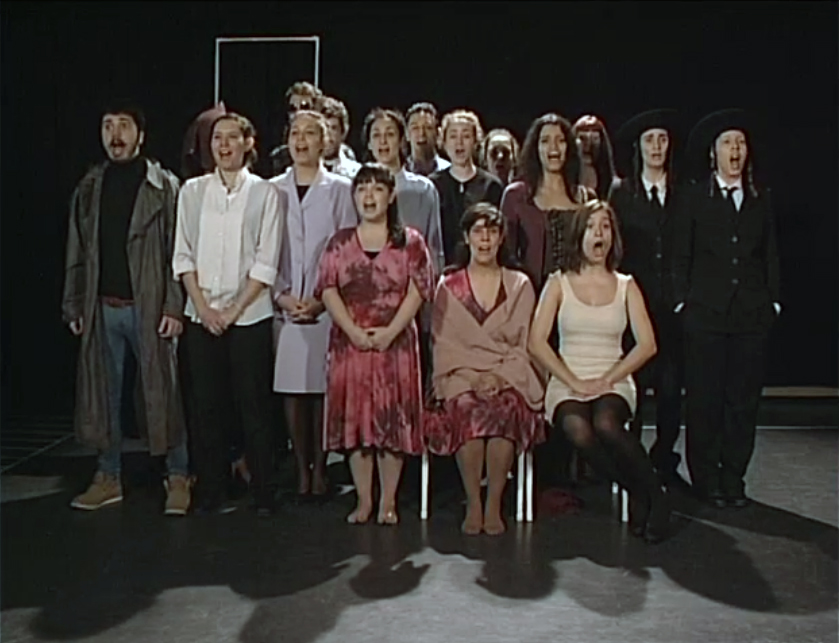
MODULE 6
Seeing (and listening) to better read Gil Vicente: approaching videos of Vincentian plays as curriculum enrichment
Instructor: Nuno Meireles
Description
This course aims to focus on other media and reading dimensions of Gil Vicente’s theatre, with three examples of contemporary performances in film and video. We will encourage discussion about what is read in the text and what is seen and heard on the scene, now framed in film. We emphasize the emergence of new meanings from what we see and listen. It seeks to expand not only knowledge about Gil Vicente’s work but also to provide educational resources that promote an engaging relationship with this kind of theatre.
Prerequisites
Reading of the electronic edition of the following texts:
- Farsa de Inês Pereira (http://www.cet-e-quinhentos.com/autores/free/251/Ines/False/False)
- Auto (ou Farsa) da Índia (http://www.cet-e-quinhentos.com/autores/free/236/India/False/False)
- Barca do Inferno (http://www.cet-e-quinhentos.com/autores/free/214/embarcação/False/False)
Material to be addressed
Videos (from the following web links)
- Farsa de Inês Pereira https://vimeo.com/98553142
- Auto da India https://vimeo.com/99839760
- Barca do Inferno (to be made available during the course)
Bibliography
Bernardes, José & Camões, José (2018). Introdução a Gil Vicente: compêndio, Imprensa Nacional/Imprensa da Universidade de Coimbra, 9-11. https://digitalis.uc.pt/pt-pt/livro/gil_vicente_compêndio
Bernardes, José (2018). “A sátira no teatro de Gil Vicente” in Gil Vicente: compêndio, Imprensa Nacional/Imprensa da Universidade de Coimbra, 277-298. https://digitalis.uc.pt/pt-pt/livro/sátira_no_teatro_de_gil_vicente
Correia, Amélia (2018). “Gil Vicente no cânone escolar. O(s) texto(s) e a(s) leitura(s)” in Gil Vicente: compêndio, Imprensa Nacional/Imprensa da Universidade de Coimbra, 517-544.
Instructors
Ana Maria Machado has a degree in Modern Languages and Literatures (Portuguese-French), with a Master’s and PhD in Portuguese Literature (University of Coimbra). She is an assistant professor at the University of Coimbra and has experience in the field of Portuguese Literature, with research in medieval literature, in the teaching of literature and in digital literature.
Ana Albuquerque e Aguilar holds a degree in Classical Languages and Literatures, with specialization in Teaching, and a Master’s Degree in Classical Studies, in the Comparative Literature branch. All degrees were obtained at the University of Lisbon, including a mobility period at the University Paris IV – La Sorbonne. Secondary school teacher, author of school textbooks for Portuguese, and teacher trainer accredited by the CCPFC. She is currently a doctoral student at the School of Arts and Humanities at the University of Coimbra, with a thesis titled Literary education in the digital age: the contribution of electronic literature, in the PhD Programme in Materialities of Literature. She is also a researcher at the Centre for Portuguese Literature and an FCT fellow. As part of her doctoral project, she was also a visiting scholar at the Autonomous University of Barcelona.
Cecília Magalhães is a PhD student in the Materialities of Literature programme at the University of Coimbra (MatLit/FLUC-UC), master in Communication and Semiotics (PUC-SP/COS) and designer (Belas Artes/SP). She has academic and professional experience focused on teaching, research and the development of projects through the creative exploration of different languages in an intermedia context. She is currently developing the Fragmentos em Prática project, focusing on the analysis of reading and creative practices in the LdoD Archive, a dynamic platform organized around the writing and editing of Fernando Pessoa’s Book of Disquiet. She is a teacher trainer accredited by the CCPFC.
Carolina Martins has a degree in Art Studies and a postgraduate degree in Literary and Cultural Studies from the School of Arts and Humanities at the University of Coimbra, where she is currently a doctoral student in Materialities of Literature, with the thesis Augmented Reading: spatial combinations in installations of graphic narratives. As part of this thesis, she developed the VAST/O project, an interdisciplinary installation accessible to deaf, blind and partially sighted people, presented so far in Bournemouth, Lisbon and London, and with dates scheduled for the Fumetto Festival (Lucerne, Switzerland) and Municipal Gallery of the Bank of Portugal (Leiria). She also created Oficina Diafragma, a visual narrative and communication workshop for all age groups.
Jaqueline Conte has a degree in Communication – Journalism (UEL), an area in which she worked for about 20 years, 12 of them coordinating the Communication Department of the Public Ministry of the State of Paraná (Brazil). She is an expert in Photography (UEL), in Marketing and Advertising (ISPG), in Creative and Collaborative Economy (ESPM) and in Production and Multiplatform Editorial Management (PUC-PR). In 2019, she completed her Master’s Degree in Language Studies (UTFPR), in the area of Language and Technology (Contemporary Aesthetics), with the thesis “The interactive digital book for children: materiality and evanescence, demand and market – a study of the Jabuti award-winning app-books”. She is a poet and a children’s writer; author of the books: “Na casa amarela do vovô, Joaninja come jujubas” (MercadoLivros, 2016), “Passarinho às oito e pouco” (Insight, 2019) and “Os jornais de Geraldine” (Arte & Letra, 2019), in addition to the book of poetry “Céu a Pino” (Patuá, in press). She is a member of Coletivo Era Uma Vez, a collaborative group that brings together writers and illustrators of children’s and youth literature from Curitiba (PR, Brazil) and of Leitura na Tela, a group of researchers dedicated to the study of digital children’s literature.
Joana Bárbara Fonseca was born in Coimbra, in the stormy summer of 1984, already curious. She has a degree in Portuguese and Lusophone Studies, from the School of Arts and Humanities at the University of Coimbra; a Master in Classical Studies, in the branch of Ancient World, by the same institution. Her postgraduate studies in Poetics and Hermeneutics in the area of Classical Studies are also from the University of Coimbra. Currently she is a PhD Fellow in Materialities of Literature, a context that has allowed her to address topics such as digital literacy, digital communities and user-generated content (where fandoms and their literary production, fanfiction, can be included) and the aesthetics of surveillance and counter-surveillance in contemporary forms of digital technodystopia. She is a teacher trainer accredited by the CCPFC.
Nuno Meireles, born in 1975, graduated in Theatre Studies from the School of Music and Performance Arts (Polytechnic Institute of Porto). He completed the curricular part of both the master’s degree in Artistic Performance – Dance (FMH-UTL) and the PhD in Child Studies (UM). He has taught in the field of artistic studies at several higher education institutions, especially ESMAE-IPP, ESAP, ILCH-UM, ESE-IPB and IE-UM. From his theatrical journey, he highlights his passage through A Escola da Noite, as an actor in texts by Gil Vicente, as well as his activity as director and playwright at Ensemble Vicente, Teatro do Filósofo com o Parvo atado ao Pé, and also as solo actor, always with texts by the 16th century playwright. It is under the figure of Gil Vicente that he joined the FCT PhD in Materialities of Literature. His research on the Vincentian voice, intermediality and video recordings is documented at https://intermediavicente.wordpress.com/ .
